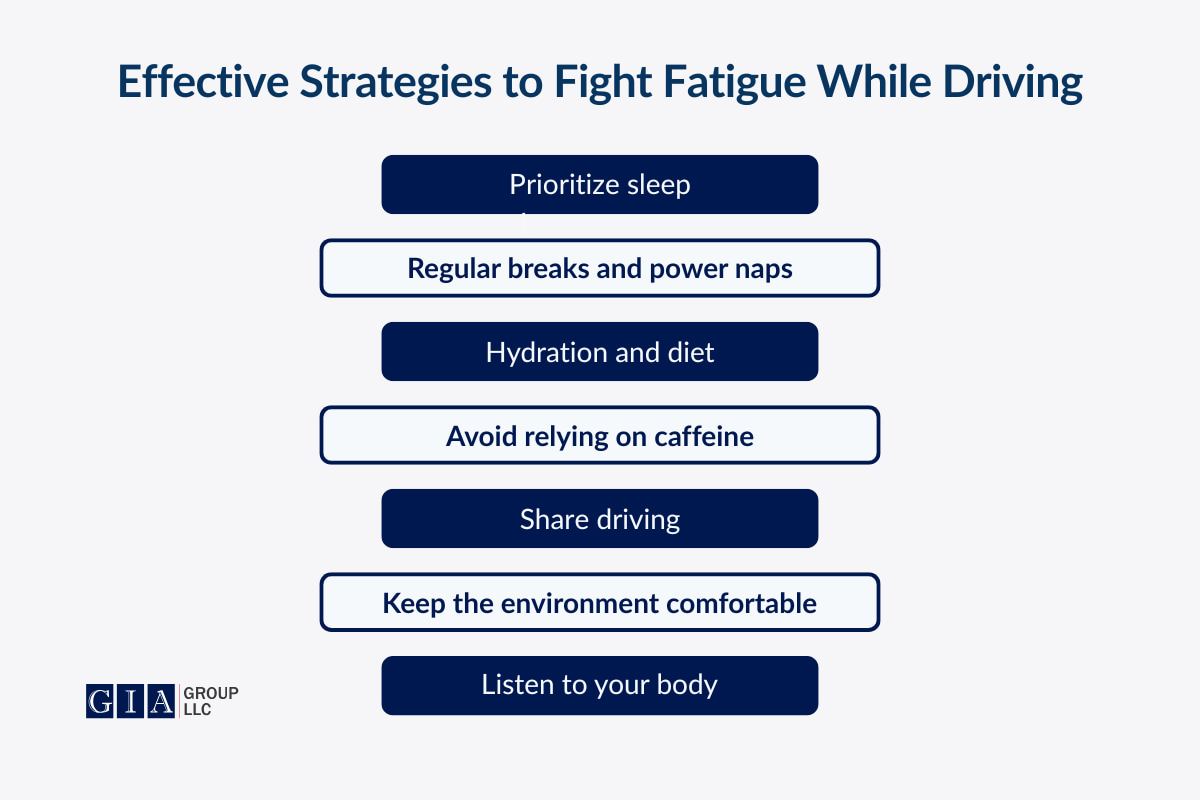Driver fatigue might sneak up silently and embrace body control systems before the driver notices what is happening—the consequences can be disastrous.
The risk factors associated with operating a vehicle while feeling exhausted remain a serious threat to road safety. Scientific research indicates that fatigue can reduce cognitive abilities to a degree that matches up to alcohol consumption effects.
Driving fatigued can be compared to driving under the influence. Many motorists believe they can overcome tiredness with determination and caffeine. Unfortunately, thousands of road accidents with injuries and fatalities stem from driver fatigue. It stands among the most dangerous, however, the most manageable roadway threats.
Understanding the Dangers of Fatigue
Fatigue is more than just feeling a bit tired—it’s a physiological and psychological state that interferes with the ability to react quickly, make sound decisions, and stay focused on the road. It manifests through slower reaction times, impaired judgment, and, sometimes, “microsleeps”—brief, uncontrollable moments when the brain quite literally shuts down for a few seconds.
Fatigue-related crashes are often worse than other types of accidents. A drowsy driver can’t brake or swerve in time. The National Highway Traffic Safety Administration (NHTSA) reports that over 100,000 crashes annually in the U.S. alone are linked to driver fatigue—with thousands of lives lost as a result.
Common Causes of Driver Fatigue
1. Lack of Sleep
The most obvious and common reason for fatigue is insufficient sleep. Studies indicate that adults need 7-9 hours of sleep per night to function optimally. However, truck drivers, shift workers, and long-haul travelers often fail to get adequate rest, leading to a cumulative sleep debt that skyrockets the risk of driving fatigue.
A consistent lack of sleep does more than just make a driver feel sluggish—it creates a sleep deficit that weakens cognitive function. Studies have found that missing just a few hours of sleep can double the likelihood of an accident. Staying awake for 24 hours has the same impact on driving ability as being intoxicated.
2. Long Hours Behind the Wheel
Extended periods of driving—particularly without sufficient breaks—significantly contribute to fatigue. Professional drivers are at the highest risk, constantly pushing their limits to meet tight deadlines. Regulations exist to cap the number of consecutive driving hours, but adherence to the rules varies widely.
Even with mandated rest breaks, the demands of the transportation industry often push drivers beyond reasonable limits, forcing them to take on longer shifts and cover greater distances. And let’s not forget the monotony of long-haul driving—contributing to fatigue, reducing awareness, and delaying reaction times.
3. Driving at Night
Our bodies are naturally programmed to sleep during nighttime hours, making late-night or early-morning driving a risky game. Circadian rhythms play a crucial role in alertness, and fighting against them is often a losing battle. Most fatigue-related road accidents happen between midnight and 6 AM, the time when the human body demands rest.
4. Undiagnosed Sleep Disorders
Communication interruptions from obstructive sleep apnea impact nighttime breathing and result in chronic daytime sleepiness, which strongly reduces a person’s ability to safely operate a vehicle. The untreated condition increases the risk for accidents, as drivers may remain unaware of their situation.
5. Medication and Diet
Certain medications—antihistamines, muscle relaxants, and even some over-the-counter drugs—induce drowsiness. Consuming heavy meals or excessive caffeine can cause energy drop-downs, making it harder to stay alert on long road stretches. Nutritional habits matter. Drivers who consume balanced meals rich in protein and healthy fats maintain better concentration than those who prefer high amounts of sugar and processed foods.

Effective Strategies to Fight Fatigue
1. Prioritize Sleep
Sleep cannot be replaced by anything else. The truck driver should get a sufficient amount of sleep, at least seven to nine hours, before they begin a long journey. Delaying a trip if feeling fatigued may play a crucial role in keeping you and other road traffic participants safe.
2. Take Regular Breaks
Following the 2-hour rule—stopping every 2 hours for at least 15 minutes—refreshes the mind and keeps fatigue at bay. Stretching, taking a short walk, and doing some quick exercises will help circulate blood.
3. Power Naps Work Wonders
If drowsiness sets in, take a power nap (15-20 minutes). Longer naps can cause grogginess, so keep it brief and follow up with a brisk activity to fully wake up.
4. Hydration and Diet Matter
Avoid sugary snacks or heavy meals that lead to energy drop-downs. Opt for high-protein foods and fresh fruits—steady energy levels help prevent fatigue. Stay hydrated, as dehydration contributes to mental fog and dizziness.
5. Avoid Relying Solely on Caffeine
A cup of coffee provides a temporary boost. But relying too much on caffeine creates a cycle of highs and lows—worsening fatigue in the long run.
6. Share Driving Responsibilities
If there is a companion or another driver, share the driving duties with them if you start feeling weak or drowsy.
7. Keep the Environment Comfortable
By ensuring the interior of your vehicle is at a comfortable temperature, using ventilation and air conditioning, you keep greater control over how your body behaves and keep fatigue at bay.
8. Recognize When It’s Time to Stop
If you find yourself too fatigued to drive, find a safe place to stop and rest.
Conclusion
Your safety and the safety of others on the road should always be a top priority. Driving while fatigued impairs the driver’s ability to respond. Preventing fatigue-related accidents starts with responsible and well-rested driving. Stay safe by getting enough sleep, taking regular breaks, following healthy hydration and eating habits, and maintaining continuous alertness.
